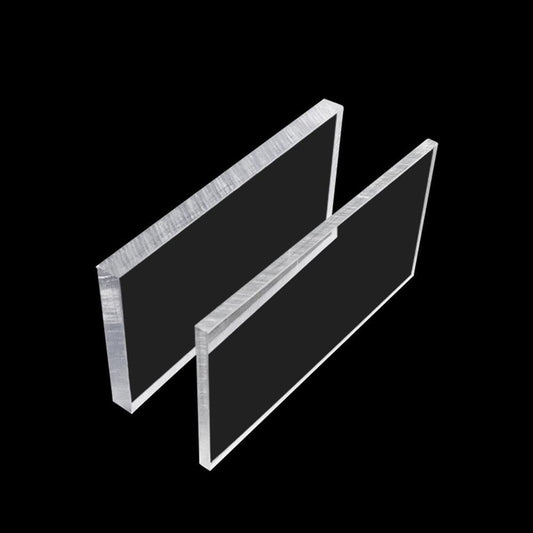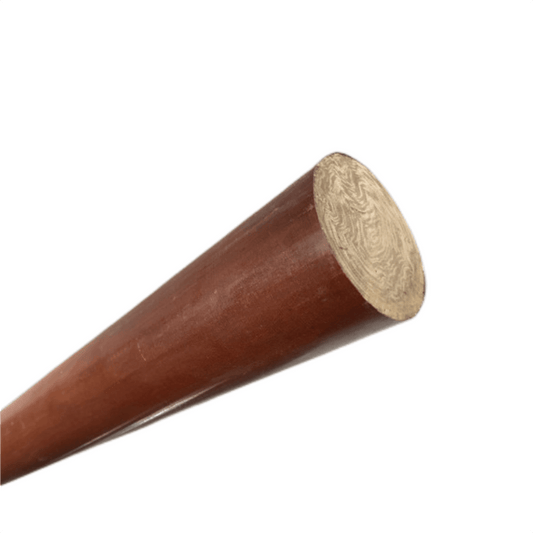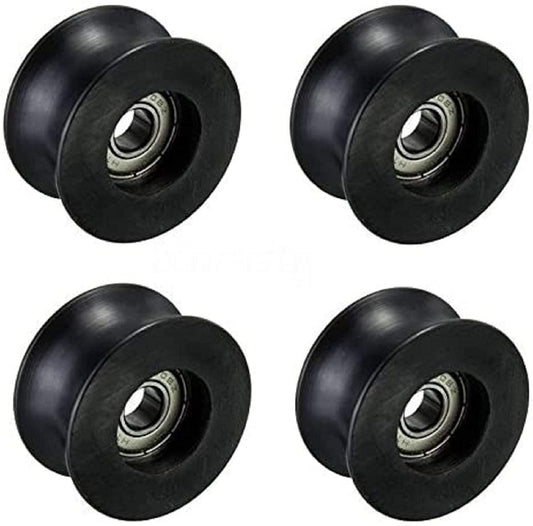Nylon blocks are versatile materials that are used in many different industries, like automotive and industrial machinery. They are known for their strength, durability, and flexibility. Because of these qualities, nylon blocks are used in both custom mechanical parts and large-scale industrial applications. Nylon blocks can be machined into precise shapes and can handle tough conditions, making them an essential part of many engineering projects. This article will explore the different ways nylon blocks can be used, how they are custom machined, and the benefits of using them in mechanical transmission systems.

Nylon blocks are popular because they can replace traditional materials like metals, offering lightweight, cost-effective, and efficient solutions. Their adaptability allows them to be used in a wide range of fields, from automotive and aerospace to consumer products and industrial machinery. This article will explain what makes nylon blocks so valuable and how they can be customized to meet specific industrial needs.
Understanding Nylon Materials
Nylon is a type of strong plastic that comes in different forms, each with its own properties suited for specific uses. Two of the most common types are Nylon 6 and Cast Nylon.
-
Nylon 6: Nylon 6 is known for its strong mechanical properties, like high tensile strength, toughness, and low friction. These qualities make it perfect for parts like gears and bushings that need to resist wear. Nylon 6 also resists chemicals and abrasion, which makes it good for challenging environments where parts face constant stress.
-
Cast Nylon: Cast nylon is made through a casting process, which results in larger and denser components compared to other types of nylon. Cast nylon is great for heavy-duty uses because it is tough, absorbs less moisture, and has good performance. It is especially useful for large, high-load parts that need strength and stability.
Nylon Block Characteristics include high wear resistance, lightweight properties, good machinability, and the ability to absorb vibrations, which makes them suitable for many different industries. Nylon blocks are also very resistant to fatigue, meaning they can handle repeated motion and mechanical stress without breaking down. This makes them a reliable choice for moving parts like gears, rollers, and other machinery components.
Custom Machining of Nylon Blocks
Custom Nylon Machining Explained
Custom machining is an important process that allows nylon blocks to be shaped to meet specific needs. Nylon blocks can be cut, drilled, milled, or shaped into precise forms, making them useful for a wide range of custom applications. Nylon is flexible, which means it can be machined into complex shapes to meet unique design requirements. Whether it is a detailed gear, a specialized bushing, or a custom fitting, nylon blocks can be machined to exact dimensions to ensure reliable performance.

CNC Machined Nylon Components
CNC (Computer Numerical Control) machining is especially useful for nylon blocks because it allows for high precision. CNC technology offers accuracy and consistency, which is important when making complex parts like gears, bushings, and guides. CNC machining is particularly beneficial for nylon because it reduces material deformation and ensures tight tolerances, which can be challenging with flexible materials. The combination of CNC machining and nylon's properties results in durable, precise parts that can handle demanding mechanical systems. CNC machining also makes it possible to produce complex parts efficiently, ensuring quality and reliability for industries that need high performance.
Benefits of Custom Machining
-
Precision Fit: Custom machining ensures that nylon components fit perfectly, which helps them integrate smoothly into mechanical systems. A precise fit reduces wear on surrounding parts, which extends the life of the equipment and lowers maintenance costs.
-
Enhanced Versatility: Custom machining makes nylon blocks more versatile, allowing them to be used in a wide range of applications, from Nylon Gears Manufacturing to custom industrial components. This versatility means that nylon can be used for both high-load and precision-driven needs.
-
Reduced Waste: Custom machining also helps reduce material waste by machining nylon blocks to exact specifications, which saves on material costs and supports sustainable manufacturing.
Applications of Nylon Blocks
Nylon Gears Manufacturing
Nylon blocks are often used to make nylon gears because they have better properties than traditional metal gears, like wear resistance and noise reduction. Nylon gears are valued for their ability to reduce noise, resist wear, and provide smooth operation. These gears help reduce maintenance costs and improve the efficiency of transmission systems. Nylon's self-lubricating properties also mean that there is less need for external lubrication, which reduces maintenance work and improves reliability.
Mechanical Transmission Parts
Nylon blocks are also widely used in mechanical transmission parts, such as bushings, bearings, and guides. These parts benefit from nylon's strength, lightweight properties, and excellent wear resistance, which allows mechanical systems to work efficiently with less friction. For example, nylon bushings are used to reduce friction between moving parts, making mechanical systems more efficient and extending their lifespan.
Other Industrial Uses
In addition to gears and transmission parts, nylon blocks are used in many other industrial applications. They are used in cushioning pads, sealing components, and protective elements that need to be strong and durable. Nylon blocks are often used as protective pads in machinery to absorb impact and reduce vibrations, helping to maintain stability and extend equipment life. Nylon sealing components are also used in fluid systems because they resist chemicals and absorb little moisture, which makes them great for keeping systems leak-proof.

Benefits of Using Nylon Blocks in Mechanical Transmission
High Wear Resistance
One of the main benefits of nylon blocks in mechanical applications is their high resistance to wear. Nylon can handle continuous contact and movement without breaking down, which makes it ideal for gears, bushings, and bearings. This wear resistance helps nylon parts last longer, reducing the need for replacements and minimizing downtime and maintenance costs.
Noise Reduction
Nylon gears and transmission parts are much quieter compared to metal components. This makes nylon a great choice for industries that want to reduce noise in their facilities. Lower noise levels also create a safer and more comfortable working environment for employees, which is important in places like manufacturing plants and conveyor systems.
Lightweight and Durable
Nylon blocks are lightweight but still strong and durable. This is especially important for applications where reducing weight is crucial, like in mechanical transmission systems and moving components. The lighter weight helps improve energy efficiency and makes handling and installing the parts easier, which reduces labor costs and the risk of injury during assembly.
Corrosion Resistance
Another important benefit of nylon blocks is their resistance to corrosion. Unlike metal, nylon does not rust or degrade when exposed to moisture or chemicals. This makes nylon a good choice for parts used in environments where they might come into contact with water or corrosive substances, such as in food processing or chemical handling equipment. The lack of corrosion also means that there is no need for protective coatings, which saves on production costs and makes maintenance easier.
Comparison: Nylon vs. Other Materials
Nylon vs. Metal Components
Compared to traditional metal components, nylon blocks have several key advantages, including corrosion resistance, lightweight properties, and reduced maintenance needs. Nylon does not rust like metal, so there is no need for expensive protective coatings, which lowers long-term maintenance costs. Nylon is also much lighter, which makes it easier to handle and reduces the weight of the entire system. Nylon components also do not create sparks when they come into contact with other surfaces, making them safer in environments where flammable materials are present.
Nylon vs. Other Plastics
Compared to other types of plastic, Nylon 6 and Cast Nylon have better mechanical properties. Nylon blocks have higher tensile strength and impact resistance, which makes them great for high-stress applications. Other plastics may deform under the same conditions. Nylon also has a higher melting point, which allows it to perform better in high-temperature environments where other materials might soften or fail. These qualities make nylon a reliable choice for demanding applications that require durability and temperature resistance.

Case Study: CNC Machined Nylon Gear for Mechanical Transmission
Project Background
A company specializing in agricultural machinery faced the challenge of finding a durable gear solution for their mechanical transmission system. The existing metal gears were noisy, prone to corrosion, and required frequent maintenance. The company chose a CNC machined nylon gear made from nylon blocks to solve these issues. This decision was based on the need for a quieter, more reliable solution that could also save costs in the long run.
Challenges and Solutions
The main problems were the noise from the metal gears and the frequent maintenance needed due to corrosion. The custom-machined nylon gear solved these problems by being lightweight, resistant to corrosion, and much quieter. CNC machining allowed for tight tolerances and a precise fit, which improved performance and reduced wear. The result was a more efficient and durable gear system that needed less maintenance.
Results
The CNC machined nylon gear significantly reduced noise levels, improved efficiency, and extended maintenance intervals. The reduced weight of the nylon gear also lowered energy consumption, making the system more environmentally friendly and cost-effective. Overall, the switch to nylon gears made the transmission system more reliable and led to considerable long-term savings for the company.
Summary of Key Points
Nylon blocks offer many benefits when used in custom machining and mechanical transmission applications. They are wear-resistant, lightweight, corrosion-resistant, and help reduce noise, making them ideal for components like gears, bushings, and other critical parts. Additionally, nylon is easy to machine and versatile, making it a reliable and cost-effective solution for demanding engineering applications.
If you are interested in learning more about custom nylon block solutions or how they can benefit your project, contact us today. Our team specializes in CNC machined nylon components designed to meet your specific needs. Whether you need high-precision gears, durable bushings, or custom mechanical parts, we are here to provide the solutions that will enhance your system's performance and reliability.

FAQs
-
What are the advantages of nylon blocks over metal gears? Nylon blocks are lightweight, corrosion-resistant, and help reduce operational noise compared to metal gears. They also do not produce sparks, which adds an extra layer of safety in specific environments.
-
Can nylon blocks be customized for unique applications? Yes, nylon blocks can be custom machined to meet specific needs, making them versatile for a wide range of applications, including complex shapes and high-precision components.
-
How does CNC machining improve the quality of nylon components? CNC machining ensures high precision, consistency, and complex geometries, which enhances the quality and performance of nylon components. It also allows for efficient production of custom parts with minimal material waste.






